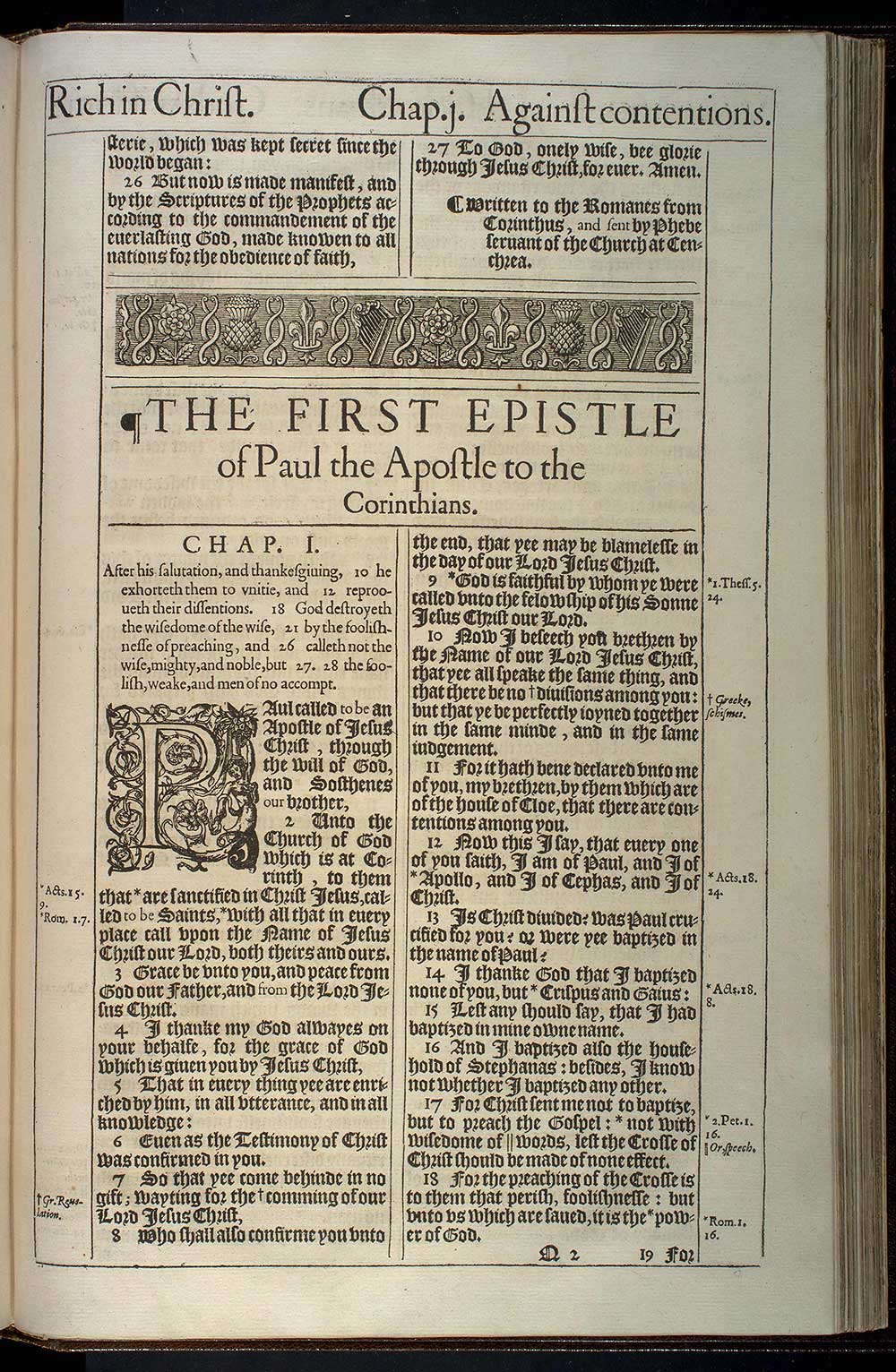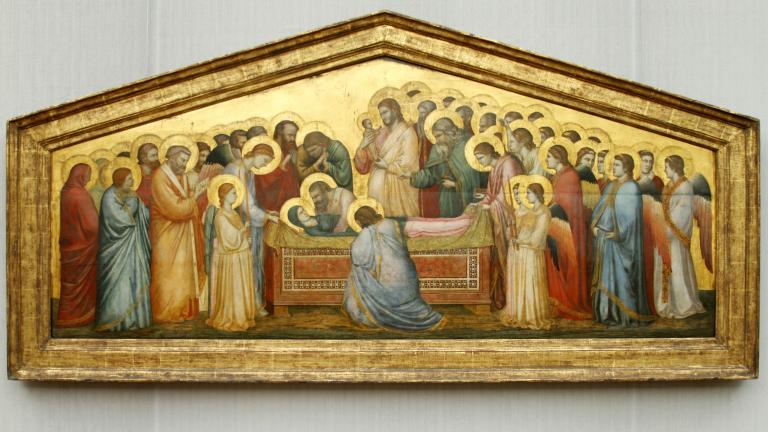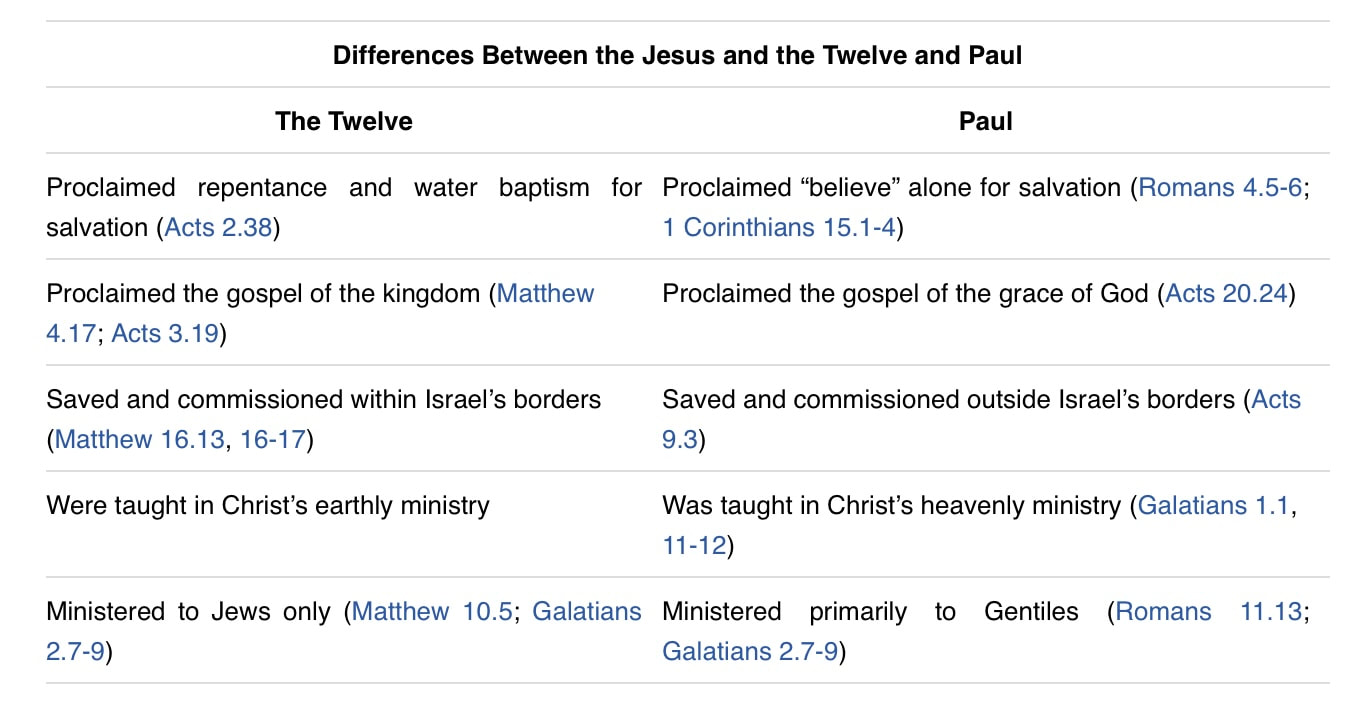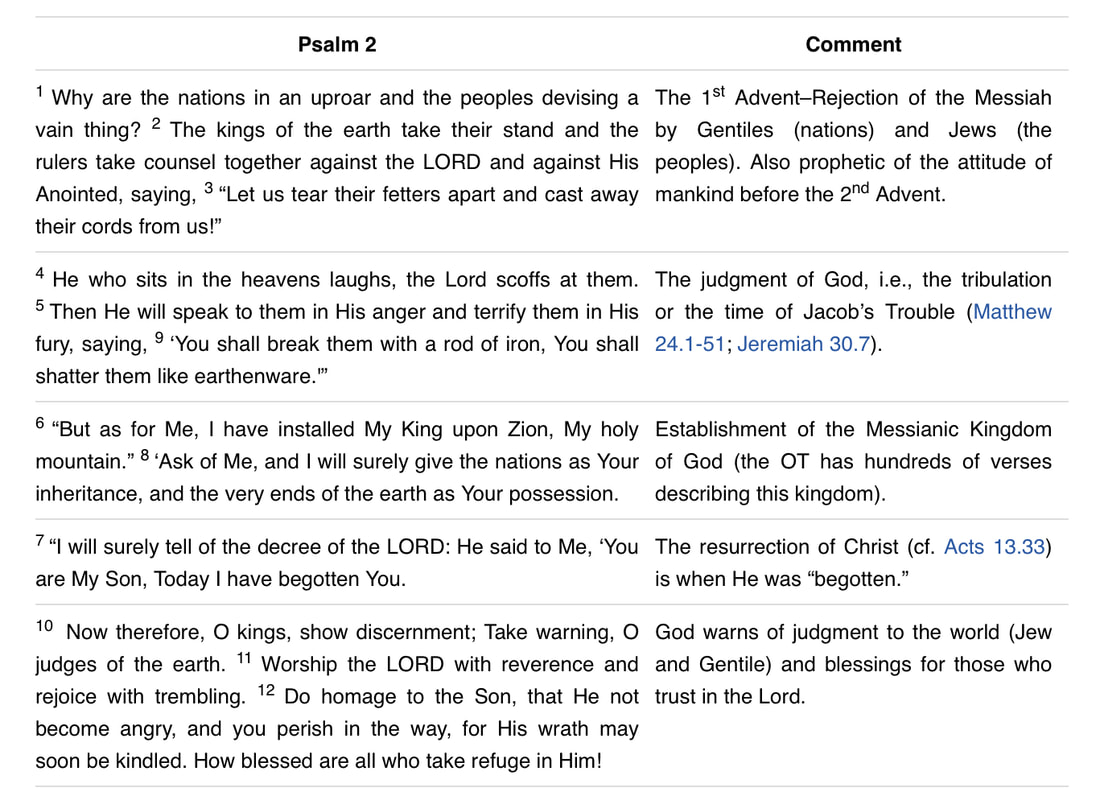of
the kingdom completely, we must
realize that none of us is without sin and guilt.
None of us can make it if left to
our own works.
Paul sees in Romans 9-11,
that
though Israel
has been temporarily set aside because of unbelief,
that the Lord isn't finished with them.
He tells the Romans that when the
fullness of the
Gentiles has come in all Israel will be saved
(11:25-27).
And the God who never fails in His promises,
will bring
about all of them to pass that He has made to national Israel.
They will have a land, a seed, a messiah
and will be a nation
through which all other nations will be blessed.
God is not dealing with a nation but with all nations and is
placing them into the Church, the Body of Christ
(Ephesians 3:1-6).
They are saved
by
grace alone, through faith alone,
in
Jesus Christ alone
(Ephesians 2:8,9).
Whatever Paul is talking about when discussing
the kingdom of God,
it includes both
Israel and the Church without
erasing the distinctions between them
or the
physical earthy promises made to Israel.
Israel and the Church are separate but
under the same umbrella
of God's eternal kingdom.
It may be an oversimplification but a definition of
Paul's use of the Kingdom of God
might be to say that it is the universal rule of a sovereign God
over all of the universe
in and through
Jesus Christ His Son.
In a broad sense it is the rule of God over all that there is.
However, presently, not all of creation acknowledges that rule.
So in a much more narrow sense today it is the
spiritual rule of the Lord over the hearts and lives
of those who submit to Him and
acknowledge Jesus Christ by faith.
Those who don't submit are not in that eternal kingdom that will never end and they never will be apart from turning to Christ. They will be judged and subject to God's wrath and judgment (Romans 1:18ff).
With all this in mind lets look at some specific characteristics of the Kingdom of God in Pauline theology.
III. The Kingdom of God is for Those Cleansed from SinOne of the major characteristics of the the kingdom, according to Paul, is that it cannot be entered into by those who are in a sinful state apart from receiving Christ's righteousness. Paul tells the Corinthians that flesh and blood cannot inherit God's kingdom. And neither can corruption inherit incorruption (I Corinthians 15:50).
In Galatians 5:20,21
the apostle talks about the acts of the flesh and names all sorts of things that people do that are sinful and says that those who live like that will not inherit the kingdom of God. I Corinthians 6:9,10 says some similar things to this and repeats twice that those who are sinful will not inherit the kingdom of God.
Also, Paul says this to the Ephesians:
"For this you can be sure:
No immoral, impure or greedy person-such person is an idolater-
has any inheritance in the
kingdom of Christ and of God."
(Ephesians 5:5).
We can thank the Lord Jesus that
He died for us,
took our sins and gave us
His righteousness.
For, to understand the Pauline theology
of the kingdom completely,
we must realize that none of us is without sin and guilt.
None of us can make it if left to our own works.
IV. The Kingdom of God is Spiritual: The next thing that we can fathom from Paul's epistles is a definite sense in which the
Kingdom of God is spiritual.
It is a decision to obey the Lord in all things. Paul touches on this when he talks about not doing things that will cause a weaker brother to stumble in Romans 14, including the things that we eat. He tells the Romans:
"Do not destroy with your food him for whom Christ died.
Therefore, do not let what is
for you a good thing be spoken of as evil;
for
the kingdom of God
is not eating and drinking,
but righteousness and peace and joy in the Holy Spirit
(14:16-17).
It's not about ceremonialism and what you eat and don't eat.
These are non-essentials.
Rather it is about having a
heart for holy, obedient living and the peace or
loving tranquility
produced by the Spirit of God.
Paul talks further of the spiritual aspect of the kingdom in
I Corinthians 4. Some of the Corinthians were arrogant and prideful in themselves.
They thought Paul would never come
and they could keep doing what they wanted and sinning unchecked. Paul says, that won't happen. He is planning on coming and then he will see how tough they really are. They talked a big talk, but they knew they were wrong and guilty and they would not be able to stand up to Paul in person and defend themselves. He says about these arrogant men:
"For the kingdom of God does
not consist in words but in power."
V. The Kingdom of God Has a Sense of Present RealityAlso, the kingdom of God is not only a future to look forward to but a present reality demonstrated by those who follow Christ. And it is not a reality that we place ourselves into. We could never get into it on our own. Paul says:
"For He has rescued us from the
dominion of darkness and brought us into the
Kingdom of the Son He loves."
(Colossians 1:13)
Further, this present reality includes the fellow believers that we are privileged to be sharing our life and ministry with today. In Colossians 4 Paul talks about several co-workers who send their greetings. He concludes in Colossians 4:11 by saying:
"Jesus who is called Justus also sends greetings.
These are the only co-workers for the
kingdom of God,
and they have
proved a comfort to me."
Finally,
this reality that we are living in includes those
who help us and lead us by their ministry
in this life on
Christ's behalf.
In I Thessalonians 2:12 the Apostle tells the Thessalonians:
"For you know that we dealt with each of you as a father deals with his own children, encouraging, comforting and urging you to live worthy of God,
who calls you
into His
kingdom and glory."
Paul loved those in the kingdom of God
whom the Lord gave him to care for
just as a father loves his children and he wanted them
to
serve the God
whom he loved as well.
VI. The Kingdom of God is Only Fully Realized in the Future:
the next thing
we have to realize in Paul's understanding of the Kingdom
is that although it is, in a sense a present reality,
the only time
that this kingdom will be fully realized is in the future when Christ returns and places everything under His feet.
There are several Scriptures in which Paul talks about this.
He told the Thessalonians,
when admiring their perseverance in the midst of persecutions and afflictions,
that this was
evidence that God's judgment is right and as a result they will be counted worthy of the kingdom of God for which they were suffering.
(II Thessalonians 1:5).
The Apostle also charges his young
spiritual son Timothy that:
"In the presence of God and of Christ Jesus,
who will judge the living and the dead,
and in view of His appearing and His kingdom,
I give you this charge"
(II Timothy 4:1).
And at the end of his life, Paul tells Timothy in his final epistle before
he was martyred that:
"The Lord will rescue me from every evil attack and
will bring me safely into His heavenly kingdom,
To Him be glory forever and ever.
Amen!
(II Timothy 4:18).
When all is said and done, all who want to have a future that is worth looking forward to have to place themselves in the hands of God the Father and our Lord Jesus Christ who made it possible for us to enter His wonderful and glorious Kingdom.
History, as we know it is coming to an end.
All the enemies of God will be overcome and
driven from this universe and
placed into the Lake of Fire.
Paul tells us that:
"Then comes the end, when He, (Christ), hands over the kingdom
to the God and Father,
when He has abolished all rule and all authority and power.
For He must reign until He has put all His enemies under His feet.
The last enemy that will be abolished is death.
For He has put all things in subjection under His feet. But when He says, “All things are put in subjection,” it is evident that He is excepted who put all things in subjection to Him.
Pauline theology
refers to the apostle Paul’s beliefs about God and the world around him,
as expressed in the New Testament epistles that he wrote and his words as recorded in the book of Acts.
Constructing a “Pauline theology,” then, is an attempt to
discern what Paul believed and taught about various topics.
For example, when people say they want to approach poverty “based on a Pauline theology,” they mean that they are attempting to address the issue of poverty from the same perspective as Paul. Pauline theology should not be confused with Pauline Christianity, a movement among some scholars seeking to drive a wedge between the teachings of Jesus and Paul.
Pauline theology is thoroughly biblical,
in that it is drawn from Scripture. Many times, scholars studying Pauline theology are trying to systematize Paul’s doctrine and explain his worldview.
Paul never wrote down all of his thoughts on every topic,
and deducing
the theology behind his written doctrine is a
difficult task.
A Pauline scholar explains:
“We have no access to Paul’s thought outside the letters he wrote,
preserved for us in Scripture.
But Pauline theology must be more than a
simple repetition of what we find on the surface
of Paul’s letters—otherwise,
it would be hard to distinguish theology from exegesis.
The Pauline theologian must penetrate
‘behind’ the text
in an effort to uncover the basic framework
and content of Paul’s thinking”
(Moo, D., The Theology of Paul and His Letters, Zondervan, 2021, part 1, chapter 1, § 2.1).
Sources for reconstructing Paul’s perspective include
his letters,
which address specific issues in the communities he founded, and the
book of Acts,
which portrays Paul’s conversion and missionary work.
Prominent scholars who have written about Pauline theology include James Dunn, Thomas Schreiner, and N. T. Wright.
Developing a Pauline theology
is a
broad and unique task that involves
exegesis, a study of history and culture, and careful
attention to
context and detail.
Paul was a complex person,
chosen by God as an apostle,
and he changed the entire world in his relatively short lifespan.
Attempting to uncover themes
in his
theological viewpoints is an admirable pursuit,
as long
as it continues to point people toward
the God Paul loved with his entire being.
As Paul himself wrote, “Follow my example, as I follow the example of Christ”
(1 Corinthians 11:1).











 RSS Feed
RSS Feed
























































